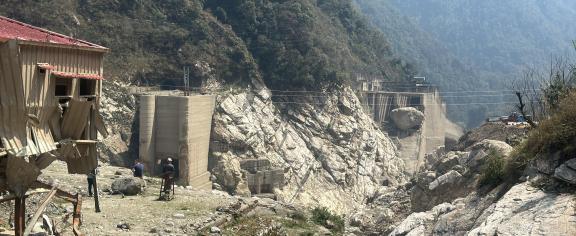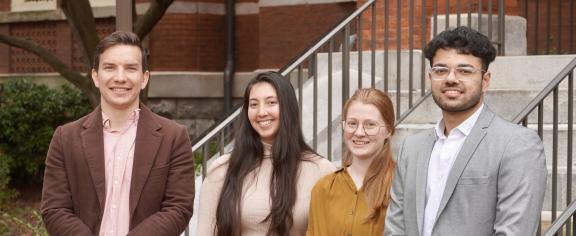2026-01-22
An AI-powered tool is changing how researchers study disasters and how students learn from them.
2026-02-17
The fellowship is one of the most competitive and prestigious awards available to early-career scholars.
2026-01-15
Four graduate students from the College of Sciences were selected for the new Community Engagement Graduate Fellowship, made possible through a gift from Google, to develop projects that positively impact the metro Atlanta area.
2025-12-16
Marketer-turned-beekeeper Deb DeWitt serves as Georgia Tech's Beekeeper in Residence and receives the Georgia Beekeepers Association’s Beekeeper of the Year Award.
2025-10-23
Researchers analyzed data from 10, yurt-like test chambers in a natural boreal spruce bog in northern Minnesota.
2025-10-15
The award will support Stroud as he creates evolution’s first high-definition map — with the help of 1,000 backpack-wearing lizards.
2025-10-10
searchers have developed a method to break down PET, one of the world’s most widely used plastics, for sustainable recycling using mechanical forces instead of heat or harsh chemicals.
2025-10-09
Georgia Tech expert Zachary Handlos joins a growing conversation about whether the Saffir-Simpson Hurricane Wind Scale adequately reflects the full range of hurricane hazards in a changing climate.
2025-08-19
Agriculture is the largest cause of deforestation. So, it follows that forest expansion efforts would displace agriculture — but new research from Georgia Tech's School of Economics reports that that’s not necessarily the case.
2025-08-19
Twenty years after Hurricane Katrina’s catastrophic landfall, its legacy of destruction, displacement, and deepened inequality continues to shape communities and challenge disaster preparedness across the U.S.









